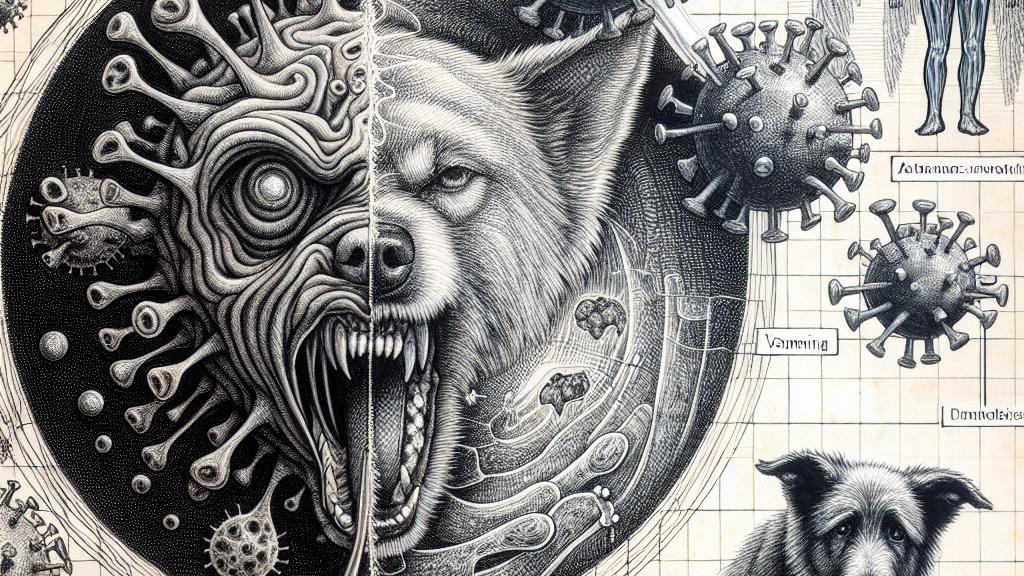Understanding How Antibodies Work Against Dog Virus for Better Vaccines
Overview
- Canine parvovirus is a critical health threat to dogs, especially puppies, leading to serious illness and even death.
- Innovative research uncovers the mechanisms of specific antibodies that neutralize this dangerous virus, inspiring better vaccine development.
- Gaining insight into these antibody interactions could transform treatments and prevention strategies for canine diseases.

The Dire Impact of Canine Parvovirus
Canine parvovirus, frequently referred to as parvo, poses a severe risk to our furry companions, particularly to innocent puppies. This contagious virus spreads rapidly, often through the feces of infected dogs, creating a breeding ground for heartache among dog owners. Just consider this: when a single puppy contracts parvo, it can lead to devastating outbreaks in local dog parks. The statistics are staggering—without timely treatment, the mortality rate can reach an alarming 91%. Early symptoms—such as vomiting, lethargy, and bloody diarrhea—are not only distressing to witness but can escalate quickly, leaving devoted pet owners with a race against time. That’s why vigilance in recognizing these signs is absolutely essential.
Antibodies: The Unsung Heroes in Action
Recent groundbreaking research from Cornell University has shed light on the vital role antibodies play in combating canine parvovirus. Surprisingly, rather than dozens of antibodies flooding the scene as one might expect, only two or three key types show dominance in the body’s response to this virus. This unexpected simplicity is fascinating! Picture these antibodies like skilled archers, honing in on specific targets on the virus to neutralize its threat. Understanding how these specific antibodies work opens up incredible possibilities for vaccine advancements. If we can amplify their action, we could see a significant leap in vaccine efficacy, providing a much-needed safety net for vulnerable dogs.
Revolutionizing Vaccination Through Insight
The ramifications of these discoveries stretch far beyond academic theory; they could fundamentally alter how we develop vaccines for parvovirus and other canine diseases. Current vaccines have provided great protection, yet they sometimes stumble if administered too early, due to maternal antibodies interfering with the vaccine's effectiveness. This can lead to a losing battle against parvo in young puppies, which no pet owner wants to face. However, with a clearer understanding of how these antibodies neutralize the virus, researchers can create innovative protocols to time vaccinations perfectly. Imagine a future where puppies can be vaccinated with optimal efficiency, ensuring they have robust protection from this lethal virus right from the start!
Continuing a Long Legacy of Research and Healing
This comprehensive exploration into the mechanisms of canine parvovirus is woven into the rich legacy of the Baker Institute for Animal Health, now celebrating its remarkable 75th anniversary. The institute's historical roots trace back to visionary leaders like Leland 'Skip' Carmichael and continue to inspire current research endeavors. Their unwavering commitment to advancing veterinary medicine has led to groundbreaking discoveries over the decades. The ongoing work aims not just to deepen our understanding of canine viruses but to enhance the overall health of dogs globally. By merging innovative technologies with a proud tradition of excellence, we are on the brink of extraordinary breakthroughs that promise healthier, happier futures for our beloved pets.

Loading...